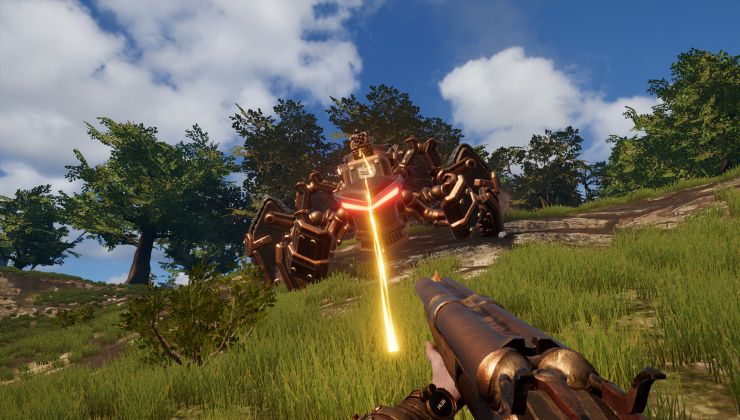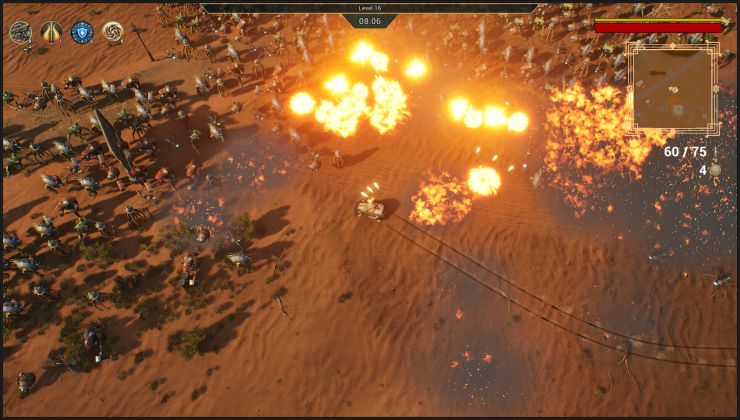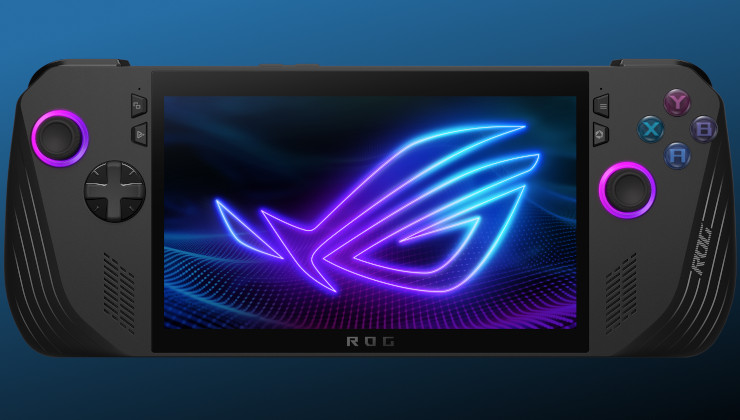Playtron are quietly building up their Linux-based PlaytronOS behind the scenes, and not only have they released their first Alpha but they've pulled in another investor too.
As a reminder: PlaytronOS was announced back in March, with a plan to bring their Fedora Silverblue based Linux system to as many devices as possible. They're not a hardware company though, think of them more like a vendor making a specialised version of Linux to ship to OEMs. Unlike SteamOS from Valve they are working on direct integrations with not just Steam but also GOG, Epic Games and other platforms directly inside the system. The first hardware that will be actually using it is the SuiPlay0x1, a strange looking and sounding web3 / blockchain handheld.
Just announced via a press release shared with me today, Square Enix Holdings Co., Ltd., have invested in the company. This is in addition to Samsung Next, Polychain Capital, Alumni Ventures, Mysten Labs and others that previously invested in them.
From the press release:
"Square Enix’s investment in Playtron underscores its commitment to driving innovation and enhancing player experiences and access," said Hideaki Uehara, General Manager, Investment & Business Development of Square Enix. "This collaboration aims to leverage Playtron’s"GameOS" to expand distribution of Square Enix’s portfolio of beloved franchises and explore new creative possibilities that are only possible when harnessing the full power of an operating system."
Playtron’s CEO, Kirt McMaster, added, “We are thrilled to join forces with such a legendary games publisher as Square Enix. The PC we know is morphing into new forms that require a purpose built OS for gaming that meets the demands of powerful new gaming hardware such as handhelds and new players who have grown up in a mobile 1st world with much more sophisticated UX sensibilities. This investment will accelerate the development and deployment of GameOS and create new experiences for players around the globe.”
Additionally, the first Alpha version of PlaytronOS has now been released for those of you who wish to test and give feedback. So far they note it has been tested across the AYANEO 2, ASUS ROG Ally, GPD Win 4 (2023), Lenovo Legion Go, Valve Steam Deck LCD and Valve Steam Deck OLED.
One of their developers kindly shared a bunch of screenshots of it in action (click to enlarge):
A lot of what they do is open source, but seemingly not all of it. In their FAQ they noted: "At first, only the operating system code will be open source. We have plans to open source more and release API documentation to allow developers in the community to contribute and build their solutions using Playtron.". They will also still have the anti-cheat problem that SteamOS has but they do say they're "working with interested partners to enable anti-cheat services".
Still early days, but it's looking pretty promising. The real test will be getting more known vendors to use it once it's further along in development.
See more about Playtron on the website. The first Alpha of PlaytronOS can be downloaded here.
My personal observation is that around 90% of native Linux games can not compete with their Windows counter part and the user is probably best advised to run the Windows version.I don't doubt that you can name a handful of examples, but I don't know how you got from that handful to 90%.
My personal observation is that everything in my library works just fine.
And just for the record, I play almost solely Linux native games. They're fine.
I didn't meant to say they are unplayable just that they tend to have all sorts of random issues you do not run into if using Proton for example.
I do prefer native games myself as long has they hit a solid 60 fps. I don't care if the Windows version runs like 20% faster on the same system and hardware as long as the native version meets my minimum expectations.
I meant to say I can understand why Playtron may not want to support native games as of yet.
While I can throw beefy hardware on underperforming games on my desktop PC to mitigate the issue it is vital for a mobile platform to get the best performance on slower hardware while also maintain good battery lifetime.
Because this sometimes also is an issue with a few native games. While performing worse then the Windows version they also require more power and cause higher system loads.
Here are a few examples:
- https://youtu.be/SEjEx6wa7hU?feature=shared
- https://youtu.be/_cytVeBQyW8?feature=shared
Again they are not unplayable and do in fact run just fine. Also I am aware two examples are not enough to say all or most native games suffer from similar issues. But these kind of issues do exist.
Plus a few native games do sometimes require manual tweaks to get them running in the first place.
My point was: You can simply avoid these issues, if they occur, just by denying all native games and go with Proton instead.
Not that I support this decision but I can understand it.
Last edited by Vortex_Acherontic on 5 September 2024 at 9:36 am UTC












See more from me